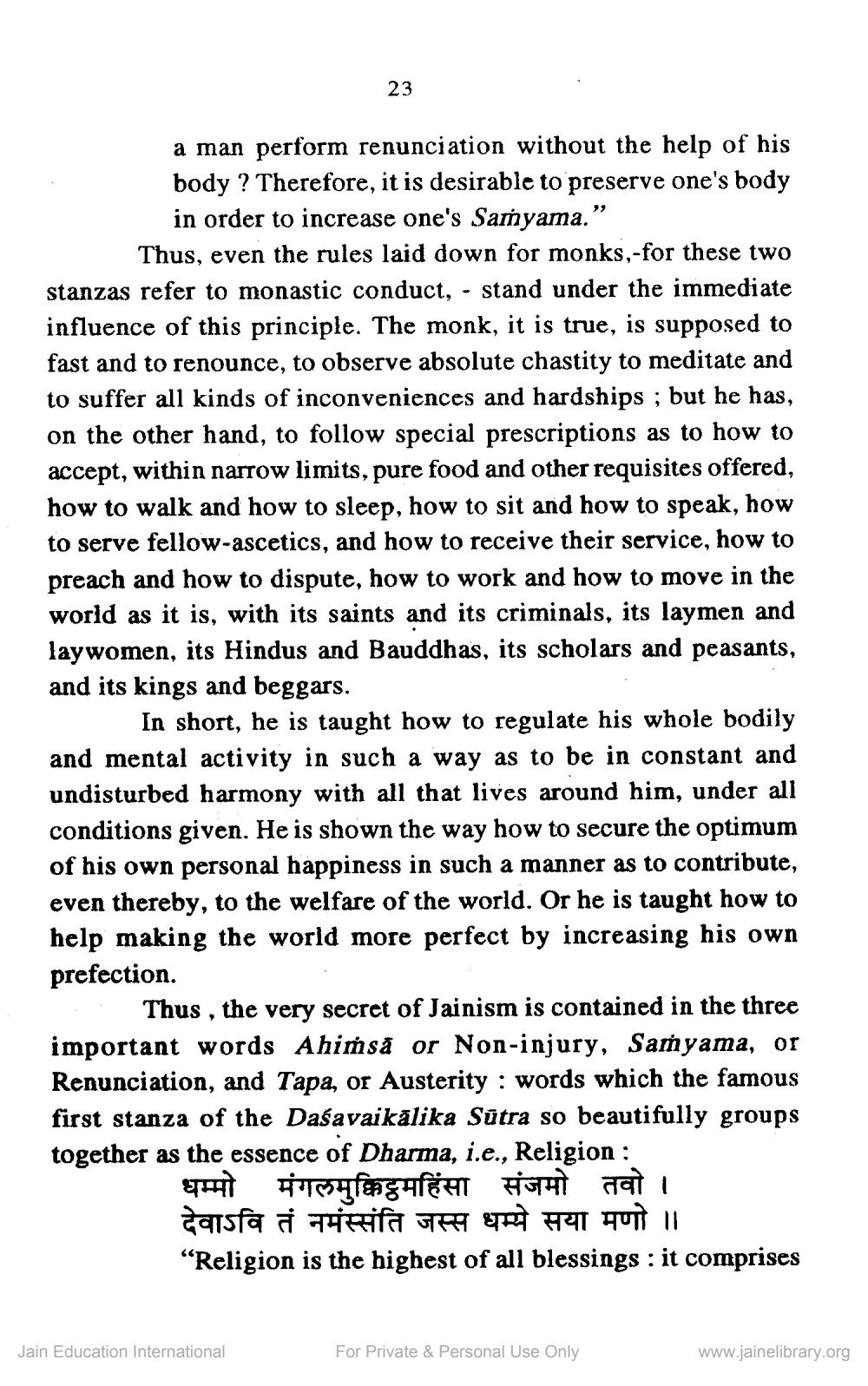________________
23
a man perform renunciation without the help of his body? Therefore, it is desirable to preserve one's body
in order to increase one's Samyama."
Thus, even the rules laid down for monks,-for these two stanzas refer to monastic conduct, - stand under the immediate influence of this principle. The monk, it is true, is supposed to fast and to renounce, to observe absolute chastity to meditate and to suffer all kinds of inconveniences and hardships ; but he has, on the other hand, to follow special prescriptions as to how to accept, within narrow limits, pure food and other requisites offered, how to walk and how to sleep, how to sit and how to speak, how to serve fellow-ascetics, and how to receive their service, how to preach and how to dispute, how to work and how to move in the world as it is, with its saints and its criminals, its laymen and laywomen, its Hindus and Bauddhas, its scholars and peasants, and its kings and beggars.
In short, he is taught how to regulate his whole bodily and mental activity in such a way as to be in constant and undisturbed harmony with all that lives around him, under all conditions given. He is shown the way how to secure the optimum of his own personal happiness in such a manner as to contribute, even thereby, to the welfare of the world. Or he is taught how to help making the world more perfect by increasing his own prefection.
Thus, the very secret of Jainism is contained in the three important words Ahińså or Non-injury, Samyama, or Renunciation, and Tapa, or Austerity : words which the famous first stanza of the Daśavaikālika Sūtra so beautifully groups together as the essence of Dharma, i.e., Religion :
धम्मो मंगलमुक्किट्ठमहिंसा संजमो तवो । देवाऽवि तं नमस्संति जस्स धम्ये सया मणो । “Religion is the highest of all blessings : it comprises
Jain Education International
For Private & Personal Use Only
www.jainelibrary.org




